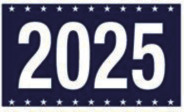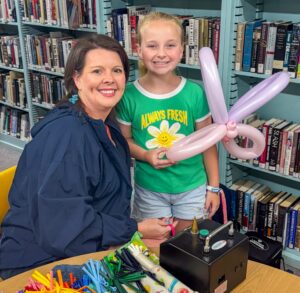When it comes to recycling, invisible is important
Recycling is a smart use of the natural resources God has given us.
Recycling is important. Recycling matters.
If a new aluminum can is made from recycled aluminum, it saves 95 percent of the energy required to make it. Recycling just one ton of cardboard will save 46 gallons of oil, 4000kW of electricity, 6.6 million Btus of energy, 9 cubic yards of landfill space, 17 trees and 7,000 gallons of water.
That’s a lot of energy saved, a lot of pollution prevented, a lot of landfill space preserved.
Even so, I’ve heard government officials complain recycling takes a lot of extra labor, trucks, and effort, and it simply costs too much.
Let’s be honest: It’s true, at the end of a fiscal year, if you’re only looking at the accounting books, recycling can look pretty ugly. It costs a lot. It’s not profitable. There’s no return on investment.
All of these are true but not the whole truth. It’s a partial truth – an illusion.
I’m a professional magician, so I spend a lot of time uncovering partial truths. It’s what illusions are based on. I think about illusions all the time, and this is a really big one.
Here’s why:
Lots of important things cannot be measured on a spreadsheet. So if you’re going to use a spreadsheet to judge recycling, you should be truthful about your accounting practices. You have to be honest that some things that matter cannot be measured.
This practice, measuring only what’s easy to measure, is so common, accountants actually have a phrase for this. It’s called “externalized costs” – the costs that are difficult to measure, or cannot be measured, so they are not included in the spreadsheet.
Did you get that?
Accountants are not saying the costs and/or invisible benefits are not real. Accountants are not saying they’re not substantial.
They are saying we don’t include them in our spreadsheet because they’re too hard to quantify. They’re too hard to measure, so we just don’t measure them.
Recycling has many invisible, difficult-to-measure benefits. Not recycling also has many externalized costs that are difficult to measure. Did you get that? Recycling has invisible benefits. Not recycling has externalized costs.
Neither the benefits nor the externalized costs show up on a spreadsheet.
For example, when it comes to recycling benefits, it doesn’t show the jobs created; the positive public support for using resources in smart ways – God’s green Earth, you might say; landfill space saved; pollution prevented to the air; the actual raw materials saved or reused in industry; the energy saved; the pollution prevented to the water; or the overall benefit to the health of our children.
The externalized costs of NOT recycling – such as air, water and land pollution; wasted resources that could be used in local industry; and jobs in recycling, manufacturing, sales, construction, and much more – don’t show up on that spreadsheet, either.
So yes, on a spreadsheet, recycling absolutely appears to cost municipalities more money than sending all those raw materials to the landfill, which still costs them money, but that’s simply not the whole story.
Basing decisions on only a portion of the story isn’t the best way to make a good decision about anything.
I’ve been in business for 37 years. Spreadsheets really do matter, but they are not everything I consider as I make decisions about what’s important to fund or not fund in my business and my personal life. I also take into consideration “the invisible but important things.”
Like what?
How about the love, attention and time I give my family?
How about the time I give to local charities, or my church, or the local Pee Wee baseball team?
How about choosing to treat my employees with respect and dignity?
How about choosing to be honest in my dealings with customers or clients?
None of these are measured on a spreadsheet, but they have value for me personally and for my community. They are important because the invisible stuff – the hard-to-measure stuff – really matters.
The most important reasons to recycle really fall into this category. Here’s why:
MACRO
Recycling is literally how the planet works.
All air, land and water is recycled. It’s how the Earth is set up. It’s the system. If you believe in God, it’s how God set it up. It’s in the DNA of our planet.
For example, did you know the same water we drink now has always been around? Yes. The same water on our planet has been recycled over and over again since the beginning of time. The same applies to the land and to the air we breathe – all recycled.
Getting in alignment with the planet’s systems is one essential key to sustaining human life on Earth. This is an invisible benefit to us and especially to our children, and it doesn’t show up on a spreadsheet.
MICRO
Recycling brings quality of life in our communities.
Quality of life, now and in the future, is improved in communities that recycle – and that matters. Recycling can help create a clean, vibrant, safe place for people to live. A non-polluted environment matters to people. Clean, safe streets matter to people. A good local economy matters to people.
People in a modern, educated 21st-century community want to be good stewards of God’s resources. We should use those resources in smart ways, and that includes making recycling available to as many in our community as possible.
Recycling is something to be proud of. Like community parks, fire departments, schools, parades, festivals and so much more, recycling makes our community better, and we support them with no ROI in money expected. The ROI is invisible.
Our kids and grandkids have invisible value, too. Our time, effort, love and dedication to them matters because it’s important. None of that care is measured on a spreadsheet.
Spreadsheets do matter, but they are only one tool to measure things by.
Please support local recycling because it’s a vote for the “invisible stuff” – which is also the “important stuff.”
Thank you for supporting recycling!
Rockin’ Eco Hero Steve Trash tours the planet teaching children about their connection to nature through magic, music and comedy. He has his own PBS Kids science show called STEVE TRASH SCIENCE. He lives with his wife and dogs in Frog Pond. For more visit www.stevetrash.com.








